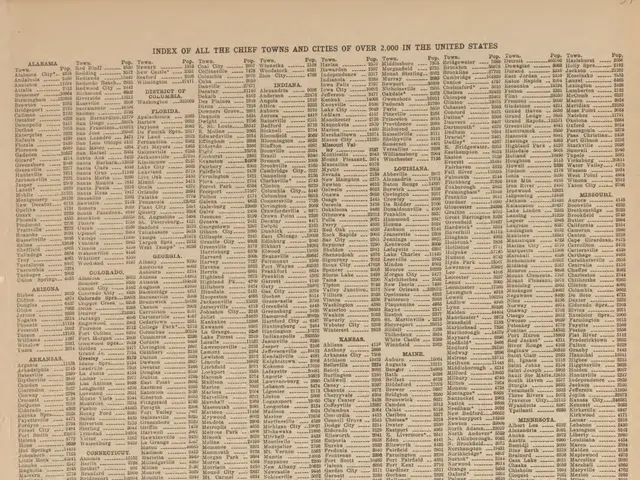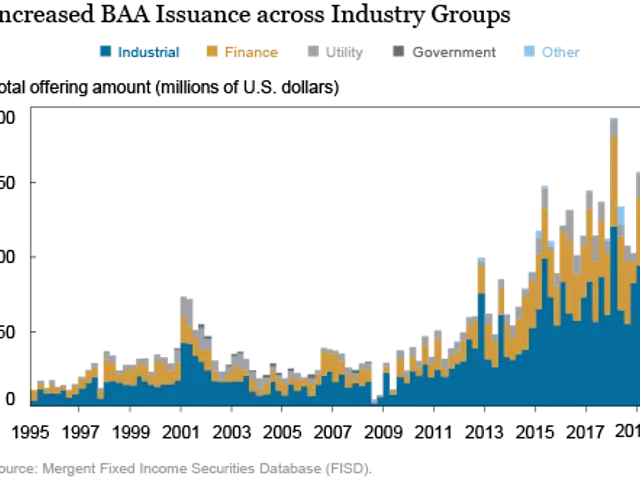Slap a 6% Increase on Sports Betting Tax, Says Brazil
Increasing gambling taxes in Brazil to strengthen the nation's financial resources
Brazil's about-face on a divisive Financial Transaction Tax has led the South American nation to set sights on another juicy target - the gambling industry. The country's finance minister, Fernando Haddad, announced on the weekend that the unpopular Financial Transaction Tax proposal has been shelved indefinitely.
A Change in Tactics for Brazil's Taxation Strategy
In its place, Brazil will pounce on private credit instruments, financial institutions, and the thrilling world of online betting, which, until recently, was an unregulated affair in the country. With the recent implementation of regulatory measures, this industry has been ripe for exploitation, providing a potential avenue for improving the country's ailing public finances.
The most recent increase of 6% implies that Brazilian operators must now cough up a staggering 18% in tax. This hefty burden goes into effect immediately, leaving little wriggle room for the gambling industry to adjust to this new reality. However, the law is still pending approval in Congress, with the chamber set to cast its vote within 120 days for the legislation to become law.
Financial Transactions Tax (IOF) Draws Controversy, Sports Betting Steps In
The Financial Transactions Tax, or IOF, proved a thorny issue, sparking widespread resistance. Consequently, the government has opted instead for the much more cooperative arena of sports betting to help bridge the financial gap. However, this new tax burden is just the tip of the iceberg, as the Brazilian Institute of Responsible Gaming (IBJR) states that payments to the government and various institutions could potentially reach an effective tax rate of 26%.
This figure includes a 25% on corporate income tax and a social contribution on all net profits of 9%. Additionally, Brazilian authorities inspect companies monthly, often demanding hefty sums that, on occasion, reach R$2m. These demands make it challenging for smaller companies to compete and maintain profitability, warns the IBJR.
The Effective Tax Burden Reaches Unsustainable Levels
Following the announcement of the new tax rate, both the IBJR and the Associação Nacional de Jogos e Loterias (ANJL) have voiced concerns that the effective tax payable by companies could even reach an unsustainable 35%. With this heavy burden, numerous companies risk being driven out of business, allowing the unregulated black market to proliferate.
The recent tax hike will not only impact sportsbooks but also Brazil's best online casinos. Both trade organizations have cautioned that burdening the regulated market only encourages illegal activity. Despite these concerns, the gambling industry remains an attractive source of revenue for Brazil.
Current and Future Effective Tax Rates in Brazil's Gambling Sector
- Gross Gaming Revenue (GGR) Tax: The current GGR tax stands at 12%, scheduled to rise to 18% starting October 1, 2025.
- PIS and COFINS Federal Social Contribution Taxes: These add an additional 9.25% to the tax burden.
- Municipal Taxes: These vary by municipality and contribute to the overall tax burden.
- IOF (Tax on Financial Transactions) for Cross-Border Payments: Recently increased from 0.38% to 3.5%, affecting payments to foreign service providers.
- Potential Future Effective Tax Rate:
- Increased GGR Tax: The rise from 12% to 18% significantly increases the tax burden on operators.
- Combined with PIS and COFINS: The total federal tax burden (GGR + PIS/COFINS) could approach about 27.25% (18% GGR + 9.25% PIS/COFINS).
- Impact of IOF and Other Taxes: For operators engaging in cross-border transactions, the IOF hike and additional taxes could push the cost beyond 52.57% of the transaction value.
- Potential for Localization: To circumvent these exorbitant costs, some operators might seek to localize their operations, tapping into local incentives and potentially decreasing tax exposure.
In conclusion, the effective tax rate for gambling companies in Brazil is on track to skyrocket due to the impending rise in GGR tax and the significant IOF increase. This shift may prompt operators to localize their operations, in an effort to navigate the evolving regulatory landscape and manage costs.
- In the wake of Brazil's decision to increase sports betting tax, operators must now pay a staggering 18% in tax, with the potential for the effective tax rate to reach an unsustainable 35%.
- The Brazilian gambling industry, including sports betting and online casinos, is under pressure due to the increasing tax burden, with potential tax rates reaching up to 26% when incorporating corporate income tax and social contributions.
- The IBJR and ANJL have raised concerns that the heavy taxes on the regulated market could drive companies out of business, allowing the unregulated black market to proliferate.
- In an attempt to improve the country's public finances, Brazil has turned its attention to the gambling industry, particularly online betting, which has recently been regulated, offering an attractive source of revenue for the government.





